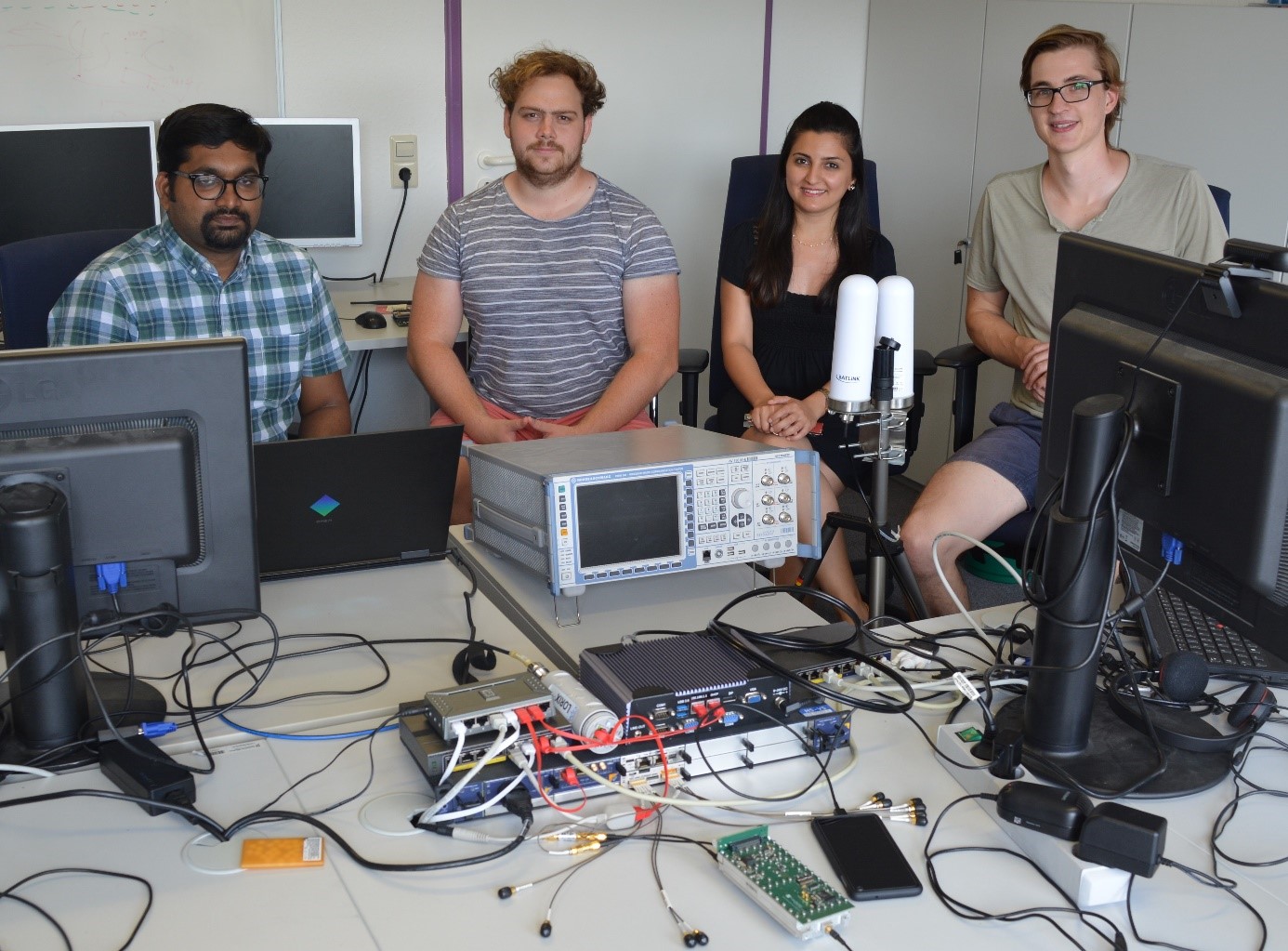te institute is conducting research in the environment of cellular mobile radio technologies in the direction of 5G - with a special focus on industrial applications in the Internet of Things (IoT). The base station, which is based on a Software Defined Radio (SDR), allows now to operate various cellular mobile technologies from NB-IoT to 5G - with its own campus network completely independent of network operators.
Currently, the German Federal Network Agency (BNetzA) has issued a frequency allocation decision for the public frequency range of 700-800MHz, as well as for the range of 3700-3800MHz, which is reserved specifically for so-called campus networks. Such campus networks are increasingly used in industry, where other common wireless communication technologies reach their limits.
Current activities are focusing on testing of reliability and timing of radio transmission under all possible operating conditions. This involves not only transmitting over the air, but also emulating radio transmission characteristics as well as simulating them in order to be able to test and compare the technologies in an all-encompassing manner.
